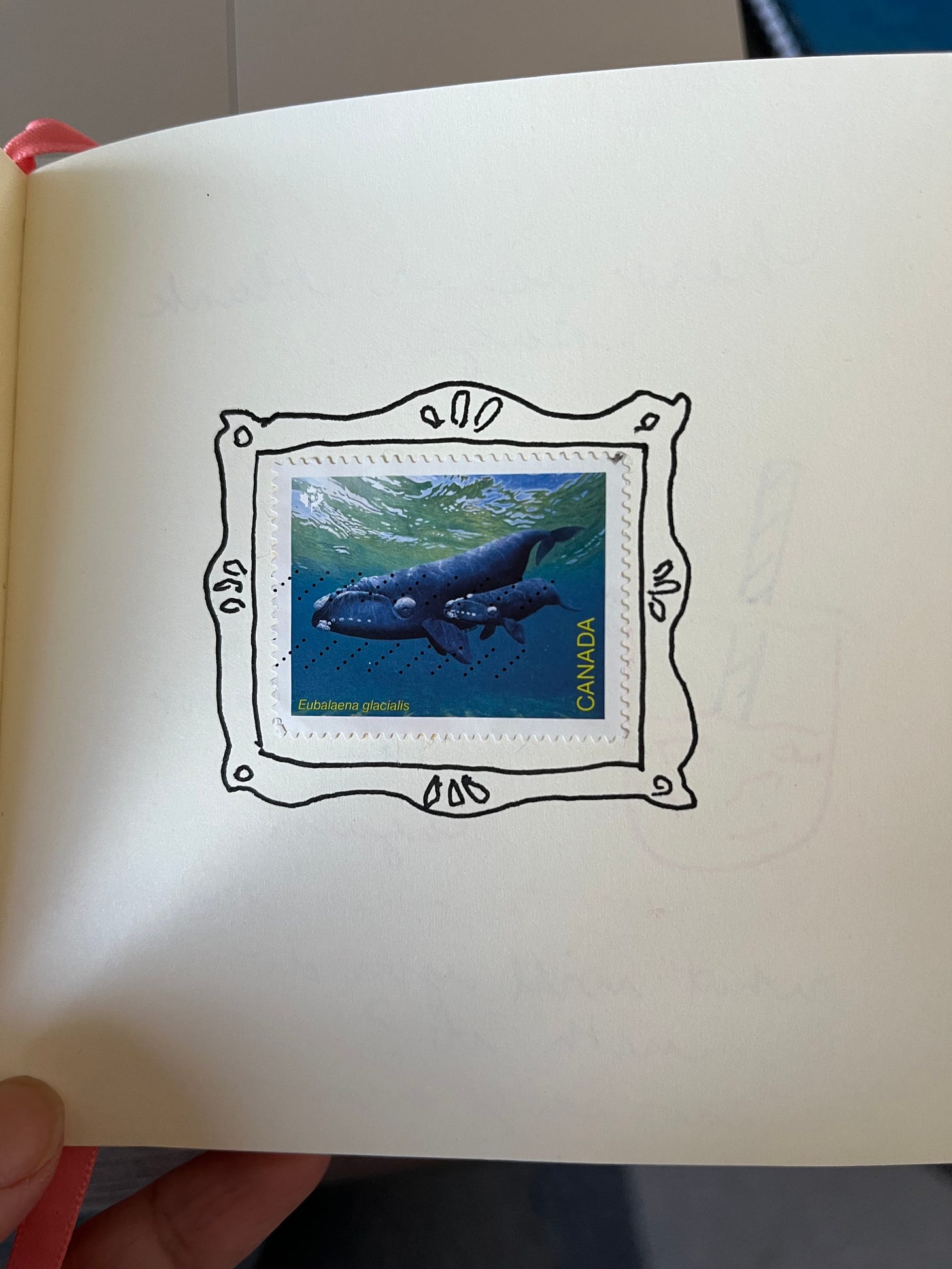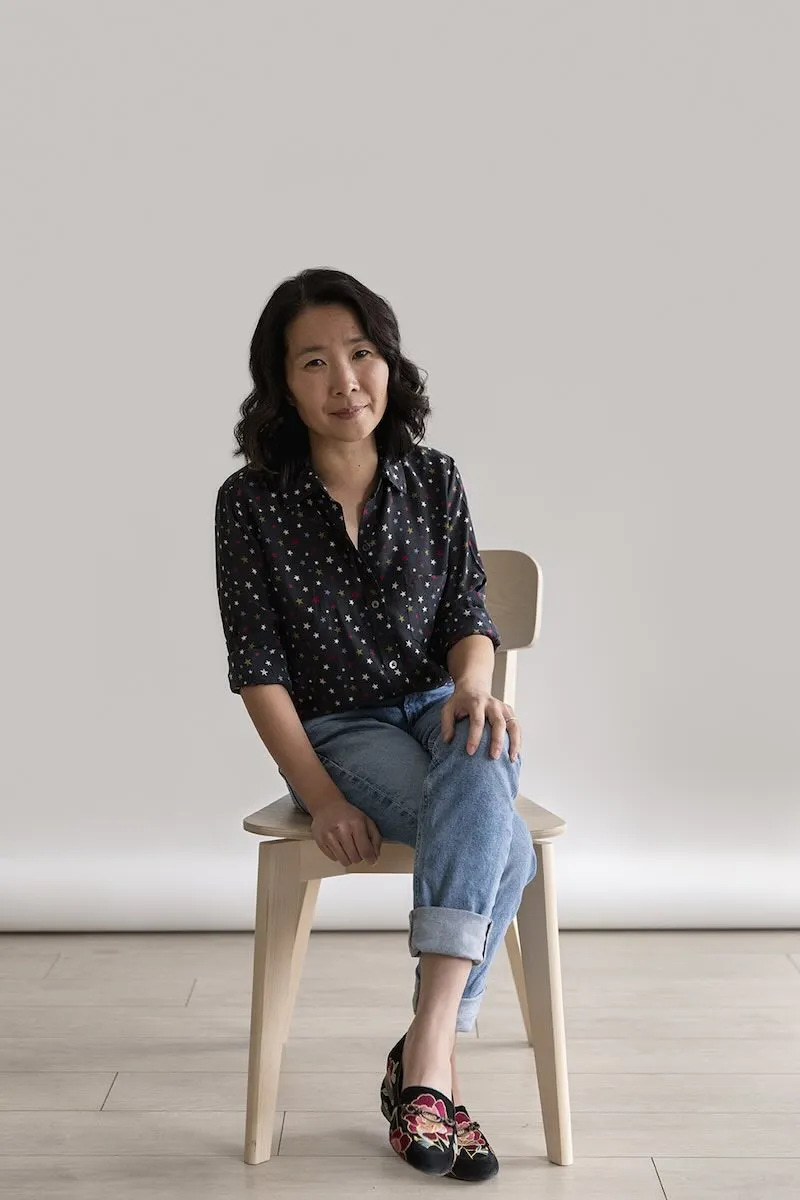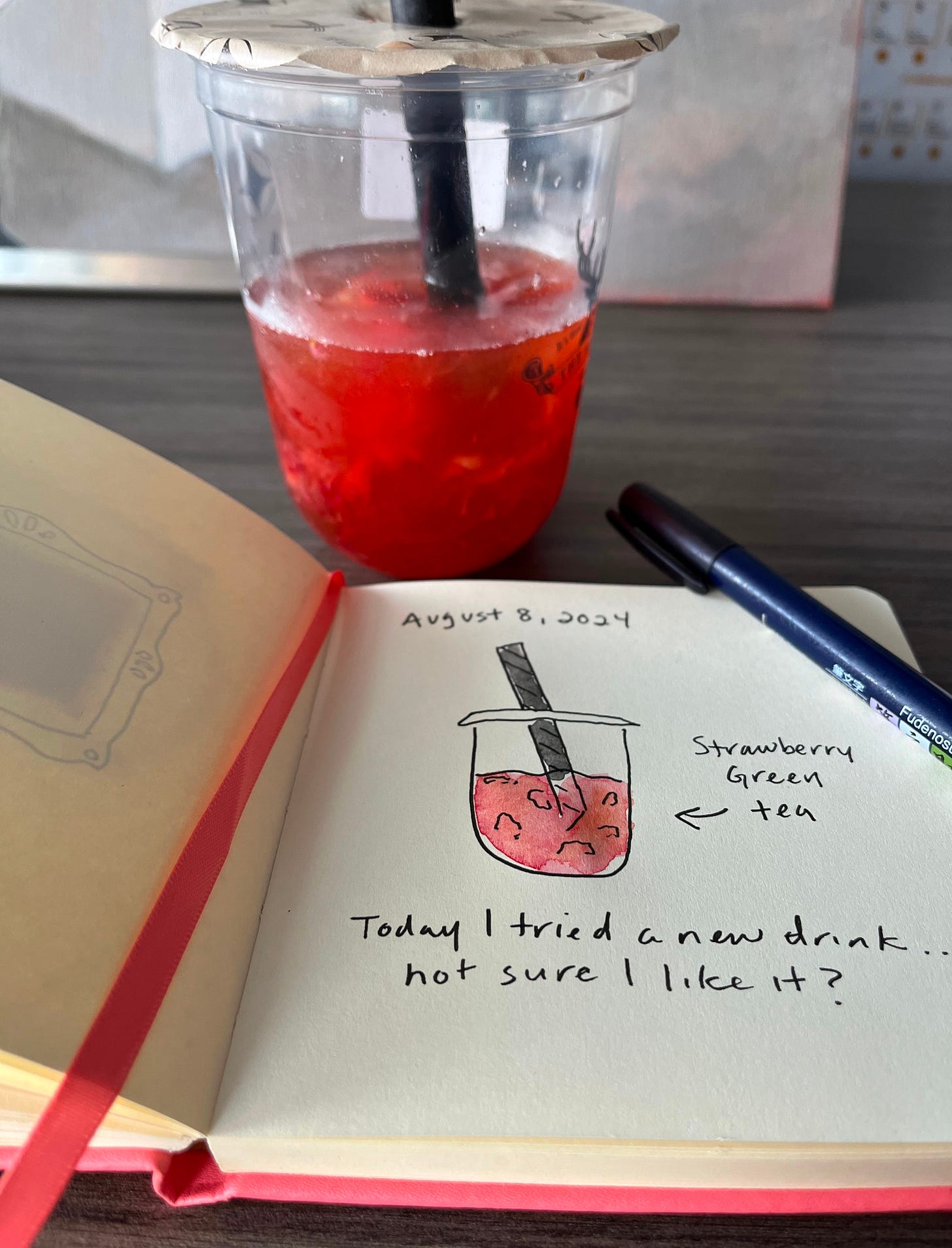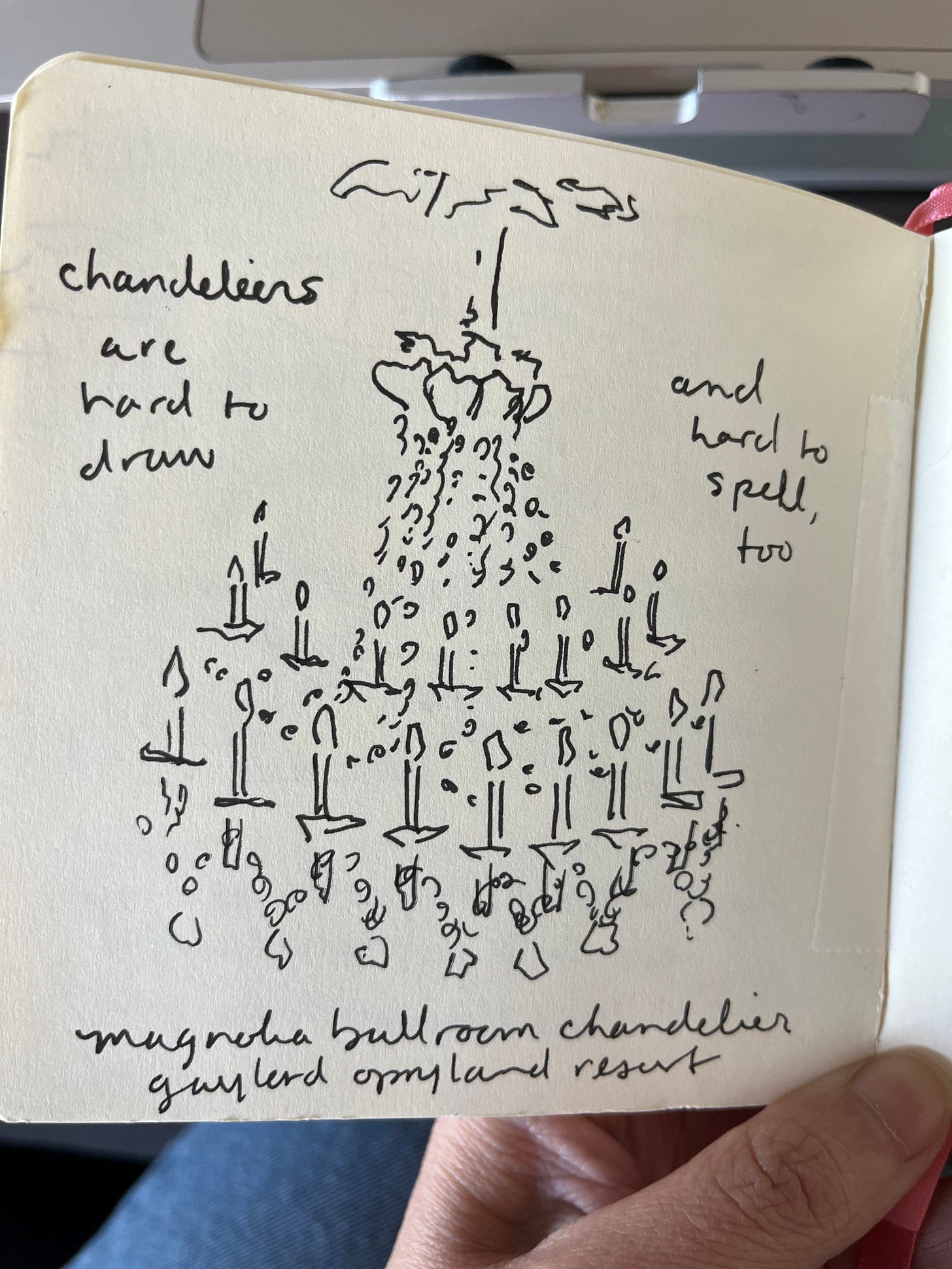Hello there! Welcome to The Magpie, a newsletter that serves as a collection of shiny objects about writing, creativity, hopes, and obsessions. My current obsession is diaries and the people who write them. Since I started keeping one at age eight, my diary has been a place of exploration and intensity, of lists and favorite quotes, of ticket stubs and wildflowers. It is a place to remember and a place to dream.
My most recent book, The Leaving Season: A Memoir in Essays, is out now! I relied on decades of my own diaries to help me write this book. My next book focuses on historical diaries of women, famous and not, and why we continue to write—and read!—these archives.
This is a Show Me Your Diary interview, a series that explores diaries and the creatives who keep them. Every week, I ask a new person to give us a peek inside their diary process, complete with photos. Yes, we are very nosy!
Want to show me your diary, or know somebody who does? Send me an email—you can just reply to this newsletter. Let’s get started…
Today’s interview is with Teresa Wong, a graphic memoirist from Canada (*no tariffs were charged in the process of making this Substack!) whose work is searing in its simplicity. She works primarily in pen and ink, allowing the negative space to take up as much importance in its emptiness. This emptiness is often her subject, along with longing, mental health struggles, and silence.
In her most recent book, All Our Ordinary Stories: A Multigenerational Family Odyssey, for example, one small square stabs straight into a reader’s heart: the author recounts her father’s response when she asks if her name has any special meaning, and he responds, It means “I hope the next one is a boy.” Her next line’s honesty, though, is what got me: I don’t know what I’d expected, but it was not this. Teresa’s work often leaves the reader in that uncomfortable place by showing us incongruities, pain, and unfairness, without letting us off the hook. NPR named the graphic memoir one of their favorite books of 2024, saying: [with its] “crisp, direct prose alongside unassuming but meaningful illustrations, All Our Ordinary Stories is a memoir of quiet longing and of what it means to live in the aftermath."
I was introduced to Teresa’s work by my dear friend and co-editor Margot Kahn, who raved about Teresa’s first book, Dear Scarlet: The Story of My Postpartum Depression, and suggested we ask her to submit pages for our anthology Wanting: Women Writing About Desire. That spare story ended up holding my entire experience of the Wanting book in its entirety—Teresa captured the push and pull of desire, the lack that wanting requires, the aching emptiness that so many of our contributors described. Here is a page from that story:
I’ve been so curious about Teresa’s process since first being introduced to her work and I hoped she’d be up for sharing some of her sketchbooks. As a narrative writer who is a terrible artist, I feel completely comfortable with my messy thoughts and scribbles in my diaries, but paralyzed when it comes to drawing. I’ve been asking my students to join me in scratching out Lynda Barry’s Four-Square Journaling Technique on a daily basis this semester, which requires a 30-second drawing, and it is often the most painful part of my writing day!
Reading over Teresa’s responses and thinking about their relation to her published work bright to mind another favorite artist-diarist of mine: Frida Kahlo. She once wrote: I never painted dreams, I painted my own reality.
Below we talk about Teresa’s preference for Team Sketchbook, her first diary (with consummate lock and key), and the fire that destroyed all of her early journals. And, of course, she gives us a peek into her own sketchbooks…let’s go!
Team Diary vs Team Journal? What do you like to call it?
If it has to be a binary, I would say Team Journal, but as a writer/illustrator, I’m actually Team Sketchbook, which makes room for drawings as well as writing.
How long have you kept a diary?
I wrote regularly in a diary from about ages 12–17, but dropped off after that. I didn’t come back to it until around 2021, when I realized I wanted to record my experiences while doing a writing residency at the University of Calgary.
What do you hope will happen to your journals once you are gone?
Well, my original diaries actually burned in a house fire 12 years ago and, though I was sad initially, I was also kind of relieved not to have my inane teenage ramblings sitting around for someone to find. Now that I’ve switched to sketchbooks, though, I don’t mind the thought of someone else looking through them after I’m gone. I imagine my descendants might be interested?
What do you remember about your first diary?
My very first diary had a puffy turquoise cover with the words “My diary” stamped in gold on the front (it was the 80s). You could lock it shut with a little key. I thought it was the classiest thing I’d ever seen, and I loved writing in it because it made me feel grown-up.
How has your diary-keeping changed over the years?
Making the switch to sketchbooks changed my philosophy around diary-keeping. Instead of it being a place to record my thoughts at length, I now see it as a way to capture fleeting moments and small observations. It’s less linear and less narrative, but more exciting, I think—and somehow just as reflective of who I am as a person.
Do you ever tuck ephemera into your diary?
Yes, I have started saving the stamps I occasionally get in the mail in my sketchbook because I didn’t know what else to do with them. I used to have a stamp collection when I was young, and I feel like it’s a nice way to honor the little kid that’s still inside me.

Interested in learning more? Click here for information about Teresa’s additional upcoming events.
More about Teresa Wong:
Teresa Wong is the author of the graphic memoir All Our Ordinary Stories (2024) and also Dear Scarlet (2019), which was a finalist for The City of Calgary W.O. Mitchell Book Prize and longlisted for CBC Canada Reads. Her comics have appeared in The Believer, The New Yorker, McSweeney’s and The Walrus. A teacher of memoir and comics at Gotham Writers Workshop, she was also the 2021–22 Canadian Writer-in-Residence at the University of Calgary.
Instagram: @by_teresawong
Website: byteresawong.com
Substack: Closet Dispatch
Books: All Our Ordinary Stories and Dear Scarlet
As always, more of what I’m up to can be found on my website, and you can follow me on Instagram for day-to-day updates.
Buy The Leaving Season here, Welcome to Shirley here, Wanting: Women Writing About Desire here, and This is the Place: Women Writing About Home here.











I am so happy you’re here on Substack Kelly as I loved The Leaving Season and I love the theme here of ‘show me your diary’ as I’ve kept them since age 10, from the little locked diaries to the ‘serious’ hardcover detailed capturing of my life in the last tumultuous years of change.
Love this so much!